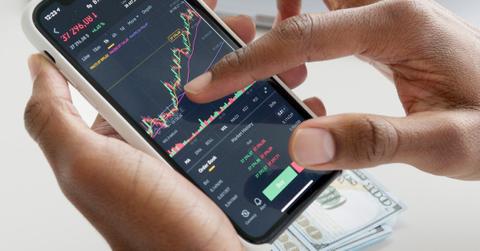Short-Swing Profit Rule: When and to Whom Does It Apply?
What is short-swing profit rule and who does it apply to? We have all the details about insider trading, the short-swing profit rule, and some exceptions.
Aug. 22 2022, Published 12:32 p.m. ET

As a rule, company insiders can't profit from short-term trades to the detriment of the company. This is where the short-swing profit rule comes into the picture. Here's the short-swing profit rule explained.
In the U.S., the short-swing rule was a federal securities law enforced by the SEC. A company insider is any officer, director, or shareholder who owns more than 10 percent of the company’s shares. This rule was created to prevent insiders, who have greater access to material company information, from taking advantage of that information to make short-term profits by trading securities.
What does the short-swing profit rule entail?
As per this rule, company insiders have to return any profits made by them from the purchase and sale of company stock if both transactions occur within a six-month period. Since this restrictive rule applies to insiders, it sometimes shields them from some of the risks that other shareholders are exposed to.
Insiders are required to publicly report their holdings and purchase and sale transactions to the SEC. Officers, directors, and 5 percent owners must file reports on Schedule 13(g) or 13(d) and officers, directors, and 10 percent holders must file reports on Forms 3, Form 4, and Form 5.

There have been questions about Bed Bath & Beyond stock and applying the short-swing rule.
Recently, there has been a lot of discussion about the possibility of applying the short-swing rule as Ryan Cohen’s RC Ventures cashed out its entire stake in the company. BBBY stock has experienced some wild swings recently as the renewed meme stock craze drove the stock to crazy heights before it came crashing down in August.
Coming back to the short-swing rule, there's still ambiguity if this rule will apply to RC Ventures’ stake sale. The firm announced its stake when it was around 9.8 percent, as opposed to 10 percent required for a person or a firm to be considered an insider. However, this stake grew due to share buybacks subsequently. The recent sale also related to a sizable chunk that was purchased in January and February this year. This would also be outside of the six-month window as specified by the short-swing profit rule.
Section-16 is key to the short-swing rule.
The short-swing rule comes from Section 16(b) of the Securities Exchange Act of 1934. Section 16 imposes restrictions on purchase and sale transactions by corporate insiders. The remedy available if someone violates Section 16 is to surrender their profits to the company.
There are some exemptions to Section 16.
However, there are some exemptions to this rule.
- Employee compensation and benefit plans qualify for an exemption from this rule under some circumstances.
- In the case of discretionary trading transactions, if the transfer or distribution election is made at least six months after the time of the last election in the opposite direction
- Grants, awards, and other acquisitions of securities from the company
- Dispositions of shares to the company
- Tax-conditioned plans
- The exercise of in-the-money stock options where the fair market value of the shares on the date of exercise exceeds the option exercise price
